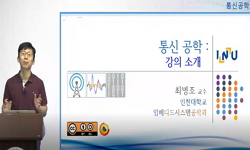The present study aimed to explore low level EFL learners' written errors and assess their gravity by native English speakers with regard to communication. The participants were thirty nine college freshmen aged 19-24 who were non-English majors. Erro...
http://chineseinput.net/에서 pinyin(병음)방식으로 중국어를 변환할 수 있습니다.
변환된 중국어를 복사하여 사용하시면 됩니다.
- 中文 을 입력하시려면 zhongwen을 입력하시고 space를누르시면됩니다.
- 北京 을 입력하시려면 beijing을 입력하시고 space를 누르시면 됩니다.
https://www.riss.kr/link?id=A99667279
- 저자
- 발행기관
- 학술지명
- 권호사항
-
발행연도
2013
-
작성언어
-
- 주제어
-
KDC
373
-
등재정보
KCI등재
-
자료형태
학술저널
- 발행기관 URL
-
수록면
1-26(26쪽)
- 제공처
- 소장기관
-
0
상세조회 -
0
다운로드
부가정보
다국어 초록 (Multilingual Abstract)
The present study aimed to explore low level EFL learners' written errors and assess their gravity by native English speakers with regard to communication. The participants were thirty nine college freshmen aged 19-24 who were non-English majors. Errors in the samples were cross-sectionally elicited by means of a written task (i.e., letter) in class. A total of 1308 errors in the corpus were assorted into six general groups in that Verbs generated the most errors, while Adverbs yielded the least errors. Subsequently, misuse of articles was the most common category, followed by misuse of verb tense and aspect. On the whole, 329 (25.2%) of the total errors were attributed to interference (i.e., LI transfer). LI grammatical features, sentence structures, and literal translations appeared to be plausible causes that led to transfer errors. Out of a total of 35 categories, native English speakers judged only 7 to be 'global' errors which were detrimental to communication in that the frequency rate of an error was not necessarily proportional to its gravity. Overall, transfer errors in the corpus did not seriously impede the participants from conveying their intended messages. Pedagogical implications of the findings for EFL classrooms are provided.
목차 (Table of Contents)
- Abstract
- Ⅰ. INTRODUCTION
- Ⅱ. LITERATURE REVIEW
- Ⅲ. METHOD
- Ⅳ. RESULTS AND DISCUSSIONS
- Abstract
- Ⅰ. INTRODUCTION
- Ⅱ. LITERATURE REVIEW
- Ⅲ. METHOD
- Ⅳ. RESULTS AND DISCUSSIONS
- Ⅴ. CONCLUSION
- Ⅵ. PEDAGOGICAL IMPLICATIONS
- REFERENCES
동일학술지(권/호) 다른 논문
-
- 팬코리아영어교육학회
- Jooeun Jung
- 2013
- KCI등재
-
A Study on the Use of Conjunctions by Korean English Learners
- 팬코리아영어교육학회
- Yoon-Jung Kim
- 2013
- KCI등재
-
Effects of Corrective Feedback on College Students' English Writing Accuracy
- 팬코리아영어교육학회
- Jeong-Won Lee
- 2013
- KCI등재
-
Korean ESL Learners' Use of Connectors in English Academic Writing
- 팬코리아영어교육학회
- Kent Lee
- 2013
- KCI등재





 스콜라
스콜라




